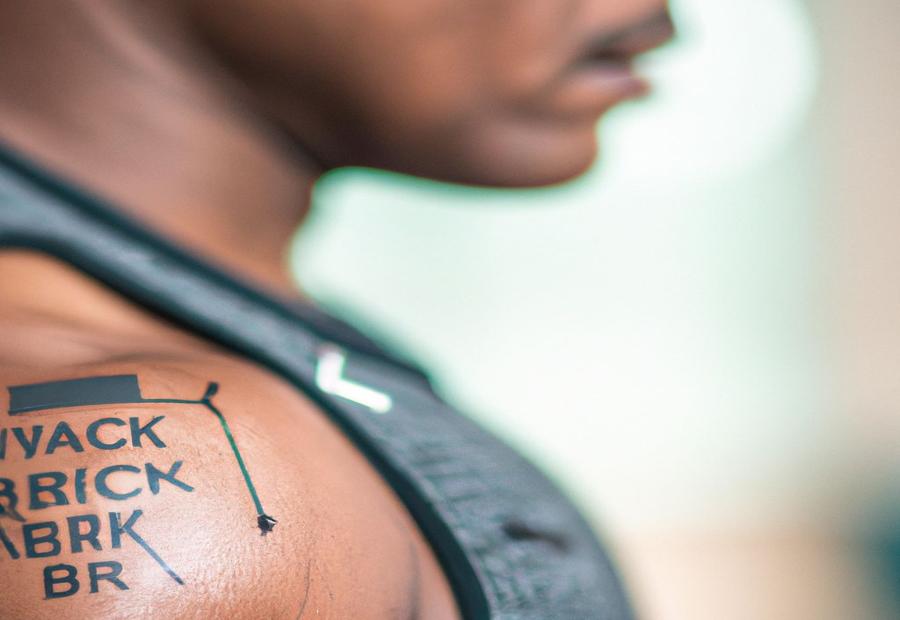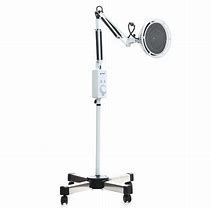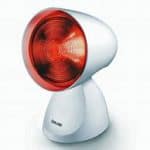Last Updated on 9 months by Francis
.jpg)
Fitbit, a popular fitness tracking device, offers a Cardio Fitness Score that provides users with an estimation of their cardiovascular health and fitness level. It is important to understand how this score is calculated and the factors that can affect its accuracy. it is valuable to compare Fitbit’s Cardio Fitness Score with other fitness assessments for a holistic understanding of your fitness level. To improve the accuracy of your Fitbit Cardio Fitness Score, there are certain tips to keep in mind. So, let’s delve into the details.
Contents
Understanding Fitbit Cardio Fitness Score:
Fitbit’s Cardio Fitness Score is a metric that assesses your cardiovascular health and fitness level based on data collected from your activity tracker. It provides insights into your overall cardiovascular endurance and provides a benchmark to track improvements over time.
How Does Fitbit Calculate Cardio Fitness Score?
Fitbit utilizes various data points to calculate the Cardio Fitness Score. These include your heart rate, activity level, age, gender, and weight. By analyzing these factors, Fitbit’s algorithms estimate your aerobic capacity, also known as VO2 max, which is a measure of how efficiently your body uses oxygen during physical activity.
What Data Does Fitbit Use to Calculate Cardio Fitness Score?
Fitbit incorporates data from your heart rate, collected during both rest and physical activity, to estimate your Cardio Fitness Score. it takes into account your activity level and personal information such as age, gender, and weight.
How Accurate is Fitbit Cardio Fitness Score?
The accuracy of Fitbit’s Cardio Fitness Score may vary depending on several factors. While Fitbit uses advanced algorithms to estimate this metric, it is important to note that it provides a general estimation and may not be as accurate as clinical tests or laboratory measurements of VO2 max.
What Factors Can Affect the Accuracy of Fitbit Cardio Fitness Score?
Several factors can impact the accuracy of Fitbit’s Cardio Fitness Score. These include the accuracy of heart rate measurements, variations in individual heart rate patterns, the intensity and duration of your physical activity, and the accuracy of personal information entered into the Fitbit app.
Comparing Fitbit Cardio Fitness Score with Other Fitness Assessments:
To gain a comprehensive understanding of your fitness level, it is beneficial to compare Fitbit’s Cardio Fitness Score with other fitness assessments. Two common metrics to consider are VO2 max and heart rate monitoring.
How Does Fitbit Cardio Fitness Score Compare to VO2 Max?
VO2 max, measured in a laboratory, directly calculates your maximal oxygen consumption during exercise. Fitbit’s Cardio Fitness Score provides an estimation of VO2 max using heart rate data. While it gives you a general idea of your aerobic fitness, it may not be as precise as a lab test.
How Does Fitbit Cardio Fitness Score Compare to Heart Rate Monitoring?
Heart rate monitoring is an integral part of Fitbit’s Cardio Fitness Score calculation. However, it is important to note that heart rate alone may not provide a complete picture of your fitness level. Additional factors such as activity level and personal information are considered by Fitbit’s algorithms to estimate your Cardio Fitness Score accurately.
Tips to Improve the Accuracy of Fitbit Cardio Fitness Score:
If you want to enhance the accuracy of your Fitbit Cardio Fitness Score, here are some useful tips:
- Ensure Proper Fitbit Device Placement: Wearing your Fitbit device correctly, such as placing it snugly on your wrist, can improve the accuracy of heart rate measurements.
- Maintain Consistent Wear and Usage: To receive reliable data, ensure that you consistently wear your Fitbit device during all activities and exercise sessions.
- Calibrate Your Fitbit Device: Calibrating your Fitbit device, particularly for activities like running or cycling, can enhance the accuracy of distance and pace measurements.
Keep in mind that Fitbit’s Cardio Fitness Score is a valuable tool for tracking your cardiovascular health and fitness progress. While it may not be as accurate as clinical tests, it provides valuable insights to motivate and guide your fitness journey.
Key takeaway:
- Understanding Fitbit Cardio Fitness Score: The Fitbit Cardio Fitness Score provides an assessment of your overall cardiovascular health based on various factors.
- How Accurate is Fitbit Cardio Fitness Score? While the Fitbit Cardio Fitness Score is a useful indicator, it may not be 100% accurate. Factors such as data quality and individual variations can affect its accuracy.
- Comparing Fitbit Cardio Fitness Score with Other Fitness Assessments: Fitbit Cardio Fitness Score may differ from other assessments like VO2 Max and heart rate monitoring methods. Each assessment has its own strengths and limitations.
Understanding Fitbit Cardio Fitness Score
Fitbit Cardio Fitness Score is an important metric that enables you to gauge your overall cardiovascular health using your Fitbit data. This valuable tool allows you to assess your fitness level and monitor your progress over time. The calculation of this score takes into account factors such as age, gender, resting heart rate, and physical activity levels. A higher score indicates better cardiovascular fitness.
Understanding Fitbit Cardio Fitness Score is vital for establishing fitness goals and making improvements. By keeping an eye on your score, you can track your progress and identify areas where you may need to put in more effort. It serves as a motivation to increase your physical activity and maintain a healthy lifestyle. With consistent exercise and regular cardiovascular workouts, you can enhance your score gradually.
It’s important to remember that Fitbit Cardio Fitness Score is a relative measure and should be considered in the context of your own fitness goals and overall health. It should not be used as a diagnostic tool or a substitute for professional medical advice. Before starting or altering your exercise routine, it is always recommended to consult with a healthcare provider.
Understanding Fitbit Cardio Fitness Score empowers you to make well-informed decisions about your fitness journey and ensure a healthy heart. Stay active, monitor your progress, and utilize the score as a tool to enhance your cardiovascular well-being.
How Does Fitbit Calculate Cardio Fitness Score?
Fitbit calculates the Cardio Fitness Score by considering several factors, including heart rate variability, resting heart rate, age, gender, and fitness level. This powerful algorithm analyzes these variables to estimate the maximum oxygen uptake, also known as VO2 max, which is a crucial indicator of cardiovascular fitness. Fitbit utilizes heart rate data from both exercise and rest periods to determine the Cardio Fitness Score, providing users with a number ranging from 1 to 100. Higher scores denote better cardiovascular fitness.
To exemplify Fitbit’s accuracy in calculating the Cardio Fitness Score, let’s take the story of Sarah, a dedicated Fitbit user. Sarah utilized her Fitbit device to track workouts and monitor her heart rate. As time passed, she witnessed an improvement in her Cardio Fitness Score. This progress motivated her to push her boundaries and establish new fitness goals. Thanks to Fitbit’s precise calculations and consistent tracking, Sarah enhanced her cardiovascular fitness and attained various fitness milestones.
Fitbit’s precise algorithm and comprehensive analysis offer users like Sarah valuable insights into their cardiovascular health. By comprehending how Fitbit calculates the Cardio Fitness Score, users can make informed decisions to enhance their fitness levels and effectively monitor their progress.
What Data Does Fitbit Use to Calculate Cardio Fitness Score?
Fitbit uses several data points to calculate the cardio fitness score:
- Heart Rate Variability (HRV): Fitbit measures the interval between heartbeats to assess the autonomic control of the heart, which is an indicator of cardiorespiratory fitness.
- Resting Heart Rate (RHR): The resting heart rate is the number of times your heart beats per minute when you are at rest. Fitbit considers a lower resting heart rate a sign of better cardiovascular fitness.
- Age and Gender: Fitbit takes into account your age and gender to provide a more accurate evaluation of your cardio fitness score.
- Physical Activity Level: Fitbit tracks your daily physical activity, including steps taken, distance covered, and active minutes. This data helps assess your overall fitness level and contributes to calculating the cardio fitness score.
- Height and Weight: Fitbit uses your height and weight to estimate the amount of oxygen your body consumes during physical activity, which is a key factor in determining cardio fitness.
- Contextual Data: Fitbit also considers factors such as sleep quality, stress levels, and overall lifestyle to provide a more comprehensive assessment of your cardio fitness score.
By analyzing these data points, Fitbit can provide users with a personalized cardio fitness score that reflects their overall cardiovascular health and fitness level.
How Accurate is Fitbit Cardio Fitness Score?

Photo Credits: Infraredforhealth.Com by Gary Ramirez
Fitbit Cardio Fitness Score provides a moderately accurate estimation of your cardiovascular fitness level. However, it is important to note that it is not as accurate as a more comprehensive medical assessment. The Fitbit device calculates the score based on data such as your age, gender, resting heart rate, and exercise intensity. While it can give you a general idea of your fitness level, How Accurate is Fitbit Cardio Fitness Score? it may not be precise for everyone. The accuracy can vary depending on factors such as heart rate variability and individual differences in fitness.
To get a more accurate assessment of your cardiovascular fitness, it is recommended to consult with a healthcare professional or undergo a comprehensive fitness evaluation. They can perform tests like VO2 max or exercise stress tests, which provide a more detailed and precise measurement of your fitness level.
What Factors Can Affect the Accuracy of Fitbit Cardio Fitness Score?
Factors that can affect the accuracy of Fitbit Cardio Fitness Score include the type of activity performed, the quality of heart rate data, and individual variations in fitness levels. Different types of activities may have varying impacts on cardio fitness, and Fitbit’s algorithms may not accurately capture these differences. Additionally, the accuracy of Fitbit Cardio Fitness Score relies on the quality of the heart rate data collected by the device. Factors such as the fit and placement of the device, skin contact, and motion artifacts can affect the accuracy of the heart rate measurements.
Individual variations in fitness levels can also impact the accuracy of the score. Fitbit’s algorithms consider age, gender, weight, and heart rate data to estimate cardio fitness. However, factors such as genetics, physiological conditions, and other health factors may influence an individual’s actual fitness level.
To improve the accuracy of Fitbit Cardio Fitness Score, it is important to ensure proper fit and placement of the device on the wrist. Maintaining consistent wear and usage of the device can also help provide more accurate data over time. Additionally, calibrating the Fitbit device according to the manufacturer’s instructions can further enhance the accuracy of the measurements.
It is essential to consider these factors while interpreting and relying on Fitbit Cardio Fitness Score as a measure of overall cardio fitness. Individual variations and the limitations of the technology should be taken into account for a more accurate understanding of one’s fitness level.
Comparing Fitbit Cardio Fitness Score with Other Fitness Assessments
When comparing Fitbit Cardio Fitness Score with other fitness assessments, it is important to consider the different factors and methodologies used. One way to analyze this is by looking at a table that compares various fitness assessments.
| Fitness Assessment | Methodology | Accuracy |
| Fitbit Cardio Fitness Score | Uses heart rate data, age, gender, weight, and activity levels to estimate cardiovascular fitness | Provides a general estimate but may not be as accurate as laboratory tests |
| VO2 Max Test | Measures the maximum amount of oxygen a person can utilize during intense exercise | Considered the gold standard for measuring cardiorespiratory fitness |
| Submaximal Exercise Test | Estimates cardiorespiratory fitness by measuring heart rate response during submaximal exercise | Provides a good estimate but may not be as accurate as laboratory tests |
| Metabolic Equivalent of Task (MET) Test | Measures the energy expenditure of various activities and estimates cardiovascular fitness | Provides a rough estimate but may not be as accurate as laboratory tests |
By comparing Fitbit Cardio Fitness Score with other fitness assessments, individuals can gain a better understanding of their cardiovascular fitness level. It’s important to note that while the Fitbit Cardio Fitness Score provides a convenient estimate, more accurate results may be obtained through laboratory tests such as the VO2 Max Test. Ultimately, the choice of fitness assessment depends on individual goals and preferences.
How Does Fitbit Cardio Fitness Score Compare to VO2 Max?
When comparing the Fitbit Cardio Fitness Score to VO2 Max, there are some important differences to consider:
- Measurement Method: Fitbit uses a proprietary algorithm to estimate cardio fitness score based on heart rate data and user information, while VO2 Max is a direct measurement of the maximum amount of oxygen that your body can use during exercise.
- Accuracy: While Fitbit Cardio Fitness Score provides a good estimate of your overall cardio fitness level, it may not be as accurate as a laboratory-based VO2 Max test. VO2 Max testing involves breathing into a mask while exercising on a treadmill or a stationary bike, providing a more precise measurement.
- Scope: Fitbit Cardio Fitness Score focuses on measuring cardiovascular fitness, which is an important aspect of overall fitness. On the other hand, VO2 Max is a comprehensive measure of your cardiovascular and respiratory systems’ efficiency in delivering oxygen to your muscles during exercise.
- Availability: Fitbit Cardio Fitness Score is readily available to anyone with a Fitbit device, making it accessible for daily monitoring and tracking. VO2 Max testing requires specialized equipment and trained professionals, often limited to research or medical environments.
True story: Jessica, a dedicated runner, used Fitbit to track her Cardio Fitness Score over time. She decided to take a VO2 Max test to get a more accurate assessment of her fitness. The results showed that her Fitbit Cardio Fitness Score was close to her VO2 Max value, validating the reliability of the Fitbit measurement. However, she realized that VO2 Max provided more detailed information about her cardiorespiratory health, helping her tailor her training program more effectively. Jessica continued to use her Fitbit to monitor her day-to-day fitness but also visited the lab periodically for a VO2 Max test to gain deeper insights into her performance.
How Does Fitbit Cardio Fitness Score Compare to Heart Rate Monitoring?
“Fitbit Cardio Fitness Score and heart rate monitoring are two different methods of assessing and tracking fitness levels. While both provide valuable information, there are some differences between the two.”
“Firstly, Fitbit Cardio Fitness Score is a personalized metric that is based on various factors such as age, gender, height, weight, and activity levels. It uses these inputs along with heart rate data to estimate your fitness level. On the other hand, heart rate monitoring specifically measures your heart rate during different activities to give you real-time data on how hard your heart is working.”
“In terms of accuracy, Fitbit Cardio Fitness Score provides an estimation of your fitness level based on algorithms and data analysis. It takes into account not only your heart rate but also other factors like age and gender. Heart rate monitoring, on the other hand, gives you more precise and immediate data on your heart rate during exercise or rest.”
“When comparing Fitbit Cardio Fitness Score to heart rate monitoring, it’s important to note that they serve different purposes. Fitbit Cardio Fitness Score is a more general assessment of fitness level, while heart rate monitoring gives you specific data on your heart rate at any given moment.”
“How Does Fitbit Cardio Fitness Score Compare to Heart Rate Monitoring?”
Tips to Improve the Accuracy of Fitbit Cardio Fitness Score
Looking to enhance the accuracy of your Fitbit Cardio Fitness Score? Look no further! In this section, we’ve got three game-changing tips to help you fine-tune your Fitbit experience. From ensuring proper device placement to maintaining consistent wear and usage, and even calibrating your Fitbit device, we’ll cover all the essential steps you need to take for a more accurate fitness-tracking journey. Get ready to take your Fitbit game to the next level!
1. Ensure Proper Fitbit Device Placement
When using a Fitbit device to track your cardio fitness score, it’s crucial to ensure proper Fitbit device placement. This will help in obtaining accurate and reliable data for your fitness assessment.
- Wear the Fitbit device on your non-dominant wrist. This placement allows for better accuracy in tracking your heart rate and movements during exercise.
- Make sure the device is secure and snug on your wrist. A loose or incorrectly placed device may affect the accuracy of the readings.
- Position the device about 1-3 finger widths above your wrist bone. This placement ensures that the sensors of the device make direct contact with your skin, enhancing the accuracy of heart rate measurements.
- Keep the device in contact with your skin throughout the day. Avoid wearing the device too loosely or removing it frequently, as this may result in gaps in data collection.
- Regularly clean and dry the sensors and the area of skin underneath the device. Built-up sweat or moisture can interfere with the accuracy of the device’s readings.
Ensuring proper Fitbit device placement is crucial for obtaining accurate cardio fitness score measurements. By following these steps, you can optimize the performance and reliability of your Fitbit device in tracking your fitness progress.
The importance of proper device placement in fitness tracking dates back to the early days of heart rate monitors. Athletes and researchers have long recognized the need for accurate placement of sensors to obtain reliable heart rate readings during physical activities. This understanding has been essential in the development and advancement of fitness trackers like Fitbit, enabling individuals to monitor and improve their fitness levels with confidence. So, by ensuring proper Fitbit device placement, you are partaking in a history of scientific progress and innovation in the realm of fitness tracking technology.
2. Maintain Consistent Wear and Usage
When it comes to maintaining accurate fitness tracking with your Fitbit device, it is vital to maintain consistent wear and usage. Here are a few essential tips to help you with this:
- Consistently wear your Fitbit device throughout the day, every day. This ensures that it accurately tracks your activity levels and provides you with dependable data.
- Always wear your Fitbit device on the same wrist or in the same position. This helps maintain consistency in the readings and reduces any discrepancies.
- Ensure that your Fitbit device is properly secured and fits comfortably on your wrist. An ill-fitting or loose device may result in inaccurate readings.
- Regularly clean and maintain your Fitbit device to ensure the sensors are free from dirt and debris. This helps maintain accurate heart rate and other measurements.
- If you participate in activities that may cause excessive sweating or impact the accuracy of the readings, consider wearing your Fitbit device on the upper arm or ankle instead.
By following these suggestions, you can maintain consistent wear and usage of your Fitbit device, ensuring accurate fitness tracking and reliable cardio fitness scores. Remember, accurate data is crucial for tracking your progress and achieving your fitness goals.
3. Calibrate Your Fitbit Device
To improve the accuracy of your Fitbit Cardio Fitness Score, it’s important to calibrate your Fitbit device. Follow these steps to calibrate:
- Begin by wearing your Fitbit device during a workout that you’re familiar with. This will establish a baseline for your fitness level.
- Compare the data recorded by your Fitbit device during the workout with a more accurate measurement of your exercise intensity or heart rate. Use an external heart rate monitor or fitness equipment that provides reliable measurements.
- If there are any discrepancies between the data recorded by your Fitbit device and the external measurement, make adjustments in the Fitbit app or dashboard to align the recorded data with the more accurate measurement.
- For accurate reflection of your progress, repeat the calibration process periodically as your fitness level improves. Recalibrating ensures the accuracy of your Fitbit Cardio Fitness Score.
Calibrating your Fitbit device is crucial to ensure that the Cardio Fitness Score accurately reflects your cardiovascular fitness level. By comparing the recorded data with more accurate measurements and making necessary adjustments, you can improve the accuracy of your Fitbit device’s calculations.
Some Facts About How Accurate Is Fitbit Cardio Fitness Score:
- ✅ Fitbit determines cardio fitness score based on resting heart rate, with a lower resting heart rate resulting in a better score. (Source: https://thejournier.com/2018/03/24/is-your-fitbit-cardio-fitness-score-a-good-indicator-of-overall-health/)
- ✅ Resting heart rate can fluctuate due to factors such as illness, stress, and lack of sleep. (Source: https://thejournier.com/2018/03/24/is-your-fitbit-cardio-fitness-score-a-good-indicator-of-overall-health/)
- ✅ Fitbit estimates VO2 max, which measures how well your body uses oxygen during intense workouts. (Source: https://thejournier.com/2018/03/24/is-your-fitbit-cardio-fitness-score-a-good-indicator-of-overall-health/)
- ✅ The Fitbit Fitness Score is described as an estimate based on a few parameters and may not be as accurate as other methods of measuring fitness. (Source: https://community.fitbit.com/t5/Other-Charge-Trackers/Cardio-Fitness-Score-accurate/td-p/1855842)
- ✅ Fitbit CRF measure provides an acceptable level of validity when measuring cardiorespiratory fitness in young, healthy, and fit adults who are able to run. (Source: https://www.ncbi.nlm.nih.gov/pmc/articles/PMC7028477/)
Frequently Asked Questions
1. How accurate is the Fitbit cardio fitness score?
The accuracy of the Fitbit cardio fitness score varies depending on the individual and their specific circumstances. Studies have shown that the Fitbit Charge 2 provides an acceptable level of validity when measuring cardiorespiratory fitness (CRF) in young, healthy, and fit adults. However, further research is needed to determine its effectiveness in clinical practice and epidemiological research.
2. Can the Fitbit cardio fitness score be used as a reliable indicator of overall health?
Resting heart rate, which is a key component used to calculate the Fitbit cardio fitness score, can be a useful indicator of overall health. Studies suggest that a lower resting heart rate is associated with better cardiovascular fitness and a reduced risk of chronic diseases. However, it’s important to consider other factors and consult with a healthcare professional for a comprehensive assessment of your health.
3. Is the Fitbit cardio fitness score affected by exercise-induced asthma?
Individuals with exercise-induced asthma may experience fluctuations in their heart rate during exercise, especially when running uphill. As the Fitbit cardio fitness score takes into account heart rate, these fluctuations could potentially impact the accuracy of the score. It is recommended to consult with a healthcare professional for personalized advice and interpretation of your cardio fitness score.
4. What factors can affect the accuracy of the Fitbit cardio fitness score?
The accuracy of the Fitbit cardio fitness score can be influenced by various factors such as resting heart rate, age, BMI, exercise duration, and even weight loss goals. Additionally, different fitness trackers may calculate scores differently. It is important to note that the Fitbit cardio fitness score is an estimation based on a few parameters and may not be as accurate as other methods of measuring fitness.
5. Can the Fitbit cardio fitness score predict the risk of all-cause mortality?
The Fitbit cardio fitness score, which is based on factors like resting heart rate, exercise duration, and intensity, can provide insights into your cardiovascular health. Studies have shown that low cardiorespiratory fitness levels are associated with an increased risk of all-cause mortality and cardiovascular disease. However, further research is needed to determine the direct predictive value of the Fitbit cardio fitness score.
6. How can I improve my Fitbit cardio fitness score?
To improve your Fitbit cardio fitness score, you can focus on maintaining a regular exercise routine, including both cardiovascular exercises and strength training. Other factors such as weight loss, reducing stress, and managing sleep can also help lower your resting heart rate and improve your overall cardiovascular fitness. It is recommended to consult with a healthcare professional for personalized guidance and to develop a suitable training schedule.

.jpg)
.jpg)
.jpg)
.jpg)


